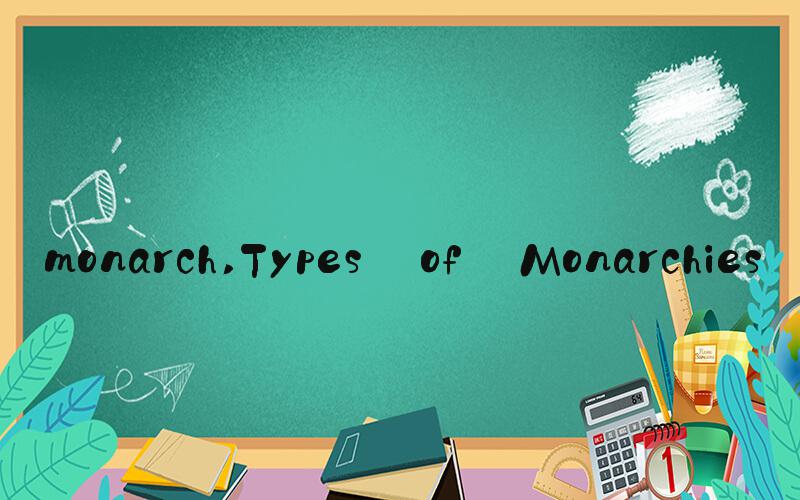
 Introduction
IntroductionMonarchy is a form of government where a single individual, known as the monarch, is the head of state. The monarch holds a distinct position in the society and is vested with considerable power over the political and social life of the country. Monarchies can be found in many parts of the world today, from the highly ceremonial monarchies of Europe to the modern constitutional monarchies of Asia and the Middle East.
In this article, we will discuss the different types of monarchies, the role of the monarch, and the advantages and disadvantages of monarchy as a form of government.
Types of MonarchiesThere are two major types of monarchies: absolute and constitutional. In an absolute monarchy, the monarch holds complete power over the government and the people. The monarch’s decisions are final, and there is no accountability to the people. This type of monarchy is very rare today, with only a few countries, such as Saudi Arabia, Brunei, and Oman, having absolute monarchies.
On the other hand, a constitutional monarchy is a form of government where the monarch’s powers are limited by a constitution, and there is a system of checks and balances. In this type of monarchy, the monarch serves as a ceremonial figurehead and has only symbolic power. The real power is vested in a parliament or other governing body. Countries such as the UK, Japan, and Sweden are examples of constitutional monarchies.
Role of the MonarchThe role of the monarch in a monarchy varies depending on the type of monarchy. In an absolute monarchy, the monarch is the supreme leader and has complete control over the government and the people. The monarch is responsible for making decisions on all matters of state, including laws, foreign policy, and defense. The monarch also appoints and dismisses government officials, judges, and other officials.
In a constitutional monarchy, the role of the monarch is more ceremonial. The monarch serves as the head of state and represents the country’s unity and continuity. The monarch performs ceremonial duties such as opening parliament and attending state functions. However, the monarch has no real power and is expected to remain neutral in political matters. The real power in a constitutional monarchy lies with the elected government.
Advantages of MonarchyOne of the advantages of monarchy is stability and continuity. Monarchs are often seen as symbols of national unity and stability, providing a sense of consistency and continuity that is not often found in other forms of government. In addition, monarchs tend to have a longer-term perspective than elected officials, who are often focused on short-term political gain.
Another advantage of monarchy is the lack of political polarization. In democracies and republics, the political process can often be divisive and polarizing. In a monarchy, the monarch serves as a unifying figure and can help to mitigate political divisions.
Finally, monarchy can be advantageous in situations where a quick and decisive response is needed. In an emergency situation, such as a natural disaster or a foreign attack, the monarch can make decisions quickly without the need for lengthy debate or consultation.
Disadvantages of MonarchyOne of the biggest disadvantages of monarchy is the lack of accountability. In an absolute monarchy, the monarch has complete control over the government and the people, and there is no system of checks and balances. This can lead to abuses of power and corruption.
Another disadvantage of monarchy is the lack of representation. In a democracy or republic, citizens have the opportunity to elect representatives who will advocate for their interests and needs. In a monarchy, the monarch makes decisions based on his or her own interests, rather than the interests of the people.
Finally, monarchy can perpetuate inequality and social stratification. Monarchs are often born into their positions, and their positions are usually hereditary. This can create a system where power and privilege are inherited by a small group of people, rather than earned through merit and ability.
ConclusionIn conclusion, monarchy is a form of government where a single individual, known as the monarch, is the head of state. There are two major types of monarchy: absolute and constitutional. The role of the monarch varies depending on the type of monarchy. Monarchy has its advantages, such as stability and continuity, but it also has its disadvantages, such as the lack of accountability and representation. Ultimately, whether monarchy is a good or bad form of government depends on the specific circumstances of the country in question.
